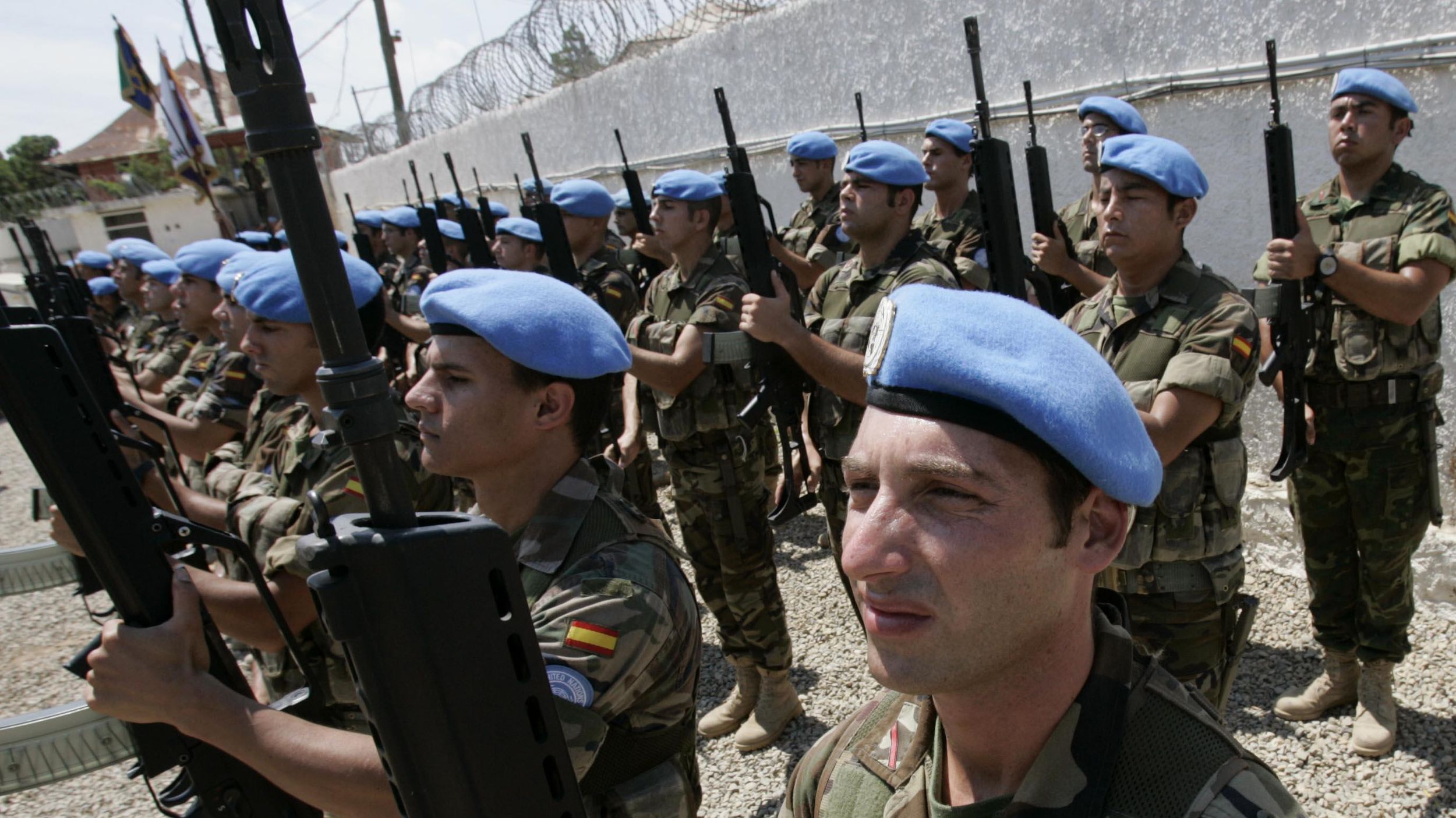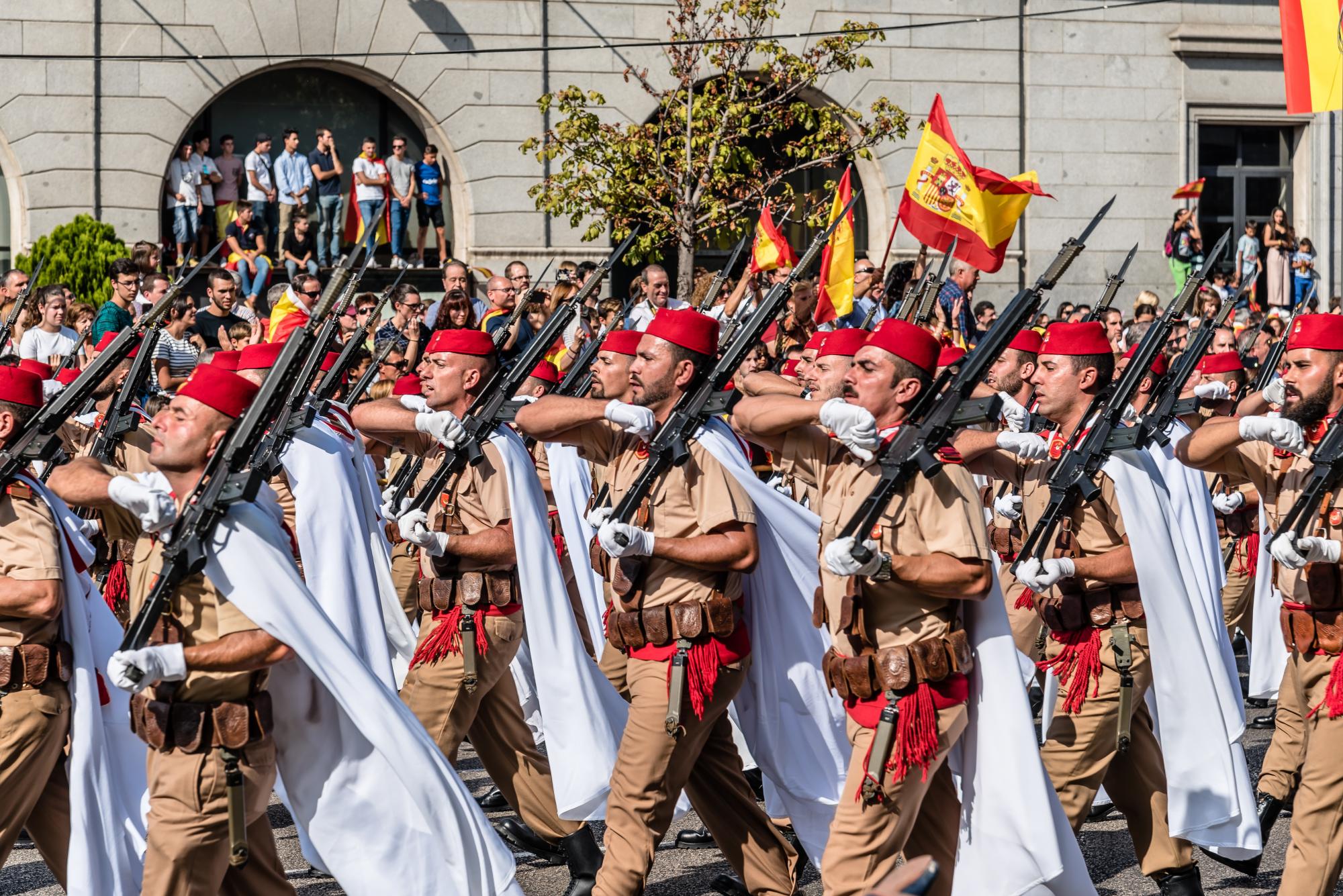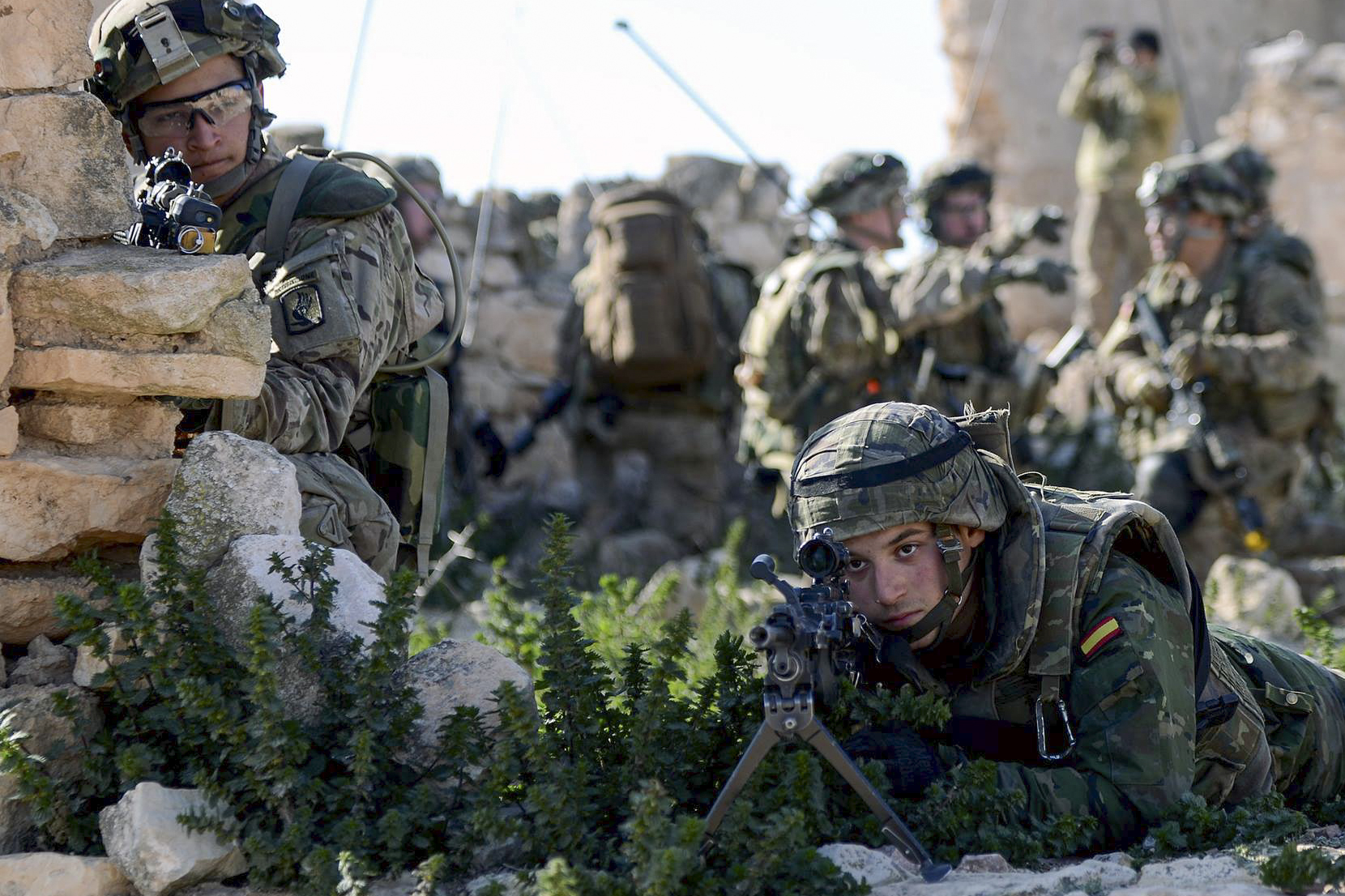Military In Spain - The Spanish Armed Forces consist of the Spanish Army - Ejército de Tierra, Navy - Armada Española, Spanish Air Force (SPAF) - Ejército del Aire, literally "the Air Army" and the Spanish Marines - Infanteria de Marina.
This includes the small joint formation of the Spanish armed forces, the Spanish Royal Guard or Guardia Real, and the military emergency unit - the Unidad Militar de Emergencias.
Military In Spain

However, World Bank figures from 2016 show that Spain spends just 1.2% of GDP on defence.
Aid To Ukraine: Spanish Armed Forces Will Join Training Of Ukrainian Military « News
Spain's economy boomed in the 1990s and 2000s, suggesting that while the economy improved, the Spanish failed to increase their spending on armaments.
In contrast, North Korea spent 23% of its GDP on defense in 2016, clearly marking military expansion as the country's top priority.
The Global Firepower website ranks Spain 41st in the world for active duty personnel, with 124,100 service personnel.
By comparison, the British armed forces have a total strength of 232,675, while the US military employs more than 1.1 million active duty, reserve and national guard members.
Tanks In The Spanish Army
As the second largest air force in the world, they have a total of 3,794 aircraft - including 1,438 attack aircraft and 806 fighter aircraft.
But in addition, Spain has 327 tanks, with another 2,493 armored fighting vehicles and 239 (towed and self-propelled) artillery vehicles.
And the Armada Española (Spanish Navy) has 2 aircraft carriers, 12 frigates, 3 submarines, 8 patrol boats and 6 minesweepers.

In comparison, the Royal Navy has a total of 70 ships, including 13 frigates, 6 destroyers, 11 submarines, 4 patrol boats and 15 minesweepers. Its two aircraft carriers are still under development.
Spanish Military Pride: Army Uniforms Under King Alfonso Xiii Of Spain
HMS Queen Elizabeth is currently at sea while HMS Prince of Wales is under construction at Rosyth. The extent to which individuals identify with their nation, rather than their region, can play an important role in the country's economic and political development. The researchers assessed the long-term effects of temporary contact between individuals from different regions during military service on the interregional attitudes and national identity of Spanish male ex-conscripts. In sum, recruitment outside the region of origin has a positive and long-lasting effect on intra-regional sentiment and national identity among recruits from regions with strong separatist movements.
The strength of national identity within a country can affect states' ability to address collective issues such as climate change 1 or to collect taxes and provide public goods. , the region has witnessed a resurgence of support for regional independence movements, especially in recent decades.3
Research suggests that encouraging communication between people from different regions can improve interregional empathy. Historically, governments have used military service as a means of strengthening national identity, blending recruits from different regions into a unit to encourage out-group relationships and increase interregional sympathy. Can recruitment create better attitudes towards people from different regions and strengthen national identity?
Spain's political history has been marked by strong, often violent, regional nationalist movements. Furthermore, because of the low probability of living outside their own region, Hispanic men had limited opportunities to expand their social networks outside their own region. In light of this, compulsory military service was the main means of communication for Spanish men with individuals from different regions, until its abolition in 2001.
Spain Reinforces Its Military Presence In Africa. Surinenglish.com
In the absence of a waiver, young Hispanic men were called up in the year of their 20th birthday, a period that varied from 18–24 months in the 1940s to nine months in the 1990s. All recruitment targets are selected by the military authorities through a public lottery within each province. Among the participants in the study, for example, two-thirds of the personnel were recruited to complete their military service outside their home region.
Researchers in the Spanish military used random geographic assignment to determine the effects of temporary contact with individuals from other regions on interregional attitudes and feelings of national identity. Because the military abandoned the draft lottery in 1992, the study focused only on ex-Hispanic men who entered the lottery in 1991 or earlier; The study participants were representative of this population.
Working with two panel data providers, Luc.id and Dynata, the researchers surveyed 3,231 former Spanish workers between December 2019 and February 2020, assessing their national identity and feelings towards people from other regions. To determine how recruitment outside one's own region affects these results, the research team also collected information about respondents' military service background, such as length of service and location. One third of the respondents were assigned to their own region by military lottery and formed the comparison group.
Given Spain's experience with strong, often violent, regional nationalist movements, the researchers identified four regions with strong peripheral nationalism (Catalonia, Galicia, Navarre, and the Balearic Islands) to examine whether the intervention had differential effects on such to interested parties from areas. .
Military Ready To Intervene In Spain's Coronavirus Crisis
Military service outside one's own region has a positive effect on recruits' long-term feelings toward the people in the region they serve. This intervention promoted national identity among recruits from regions with historically strong regional nationalist movements.
Recruiting outside one's own region has a positive effect on feelings towards people living in the service region:
Individuals who served outside their home region were more sympathetic and loyal to those in the service region than those who served in their home region. This effect was strongest among those joining from regions with strong regional nationalist movements. These results are consistent with the theory of the contact hypothesis, which predicts that the intermingling of people from different regions strengthens interregional empathy, especially when the contact situation favors equal status, common goals, and cooperation between the groups—which researchers in the argued during military service.
The intervention had a positive effect on national identity among recruits from regions with strong regional nationalist movements:
Portrait Of Spanish Soldier During Display Of Spanish Armed Forces Day In Seville, Spain Stock Photo
Although enrollment outside one's own region had no overall effect on national identity, there were significant subgroup differences. Entrants from regions with strong regional nationalist movements who completed their military service outside their region reported stronger attachment and national pride than their counterparts serving in their own region.
Effects on interregional sentiments and national identity were likely caused by increased exposure to recruits from different regions during military service:
The researchers found suggestive evidence that the main driver of these effects is increased connectivity between regions. Individuals who served in the military outside their region were more likely to develop friendships with soldiers from different regions than those who served in their home region. Affiliates from areas with strong regional nationalist movements were particularly susceptible to contact with individuals from other regions.

Taken together, these results show that the combination of recruits from different regions was an effective means of improving intra-regional sentiment and strengthening national identity. This suggests that fostering cross-regional connections in early adulthood can shape people's sense of national identity in the long term and improve their attitudes toward individuals from other regions. Governments seeking to strengthen national identity among young adults may consider programs and policies that enable communication between people from different regions.
First Spanish Patriot Missile Rotation Complete In Turkey > Incirlik Air Base > Article Display
Milfont, Taciano L., Danny Osborne, Kumar Yogeswaran, and Chris G. Sibley. "The role of national identity in collective environmental action." Journal of Environmental Psychology72 (2020): 101522.
Chan, Eugene Y. "Exposure to National Flags Reduces Tax Evasion: Evidence from the United States, Australia, and Great Britain." European Journal of Social Psychology 49 no. 2 (2019): 300–312.
Vanschoonbeek, Jakob. "A Quantitative Model of State Fragmentation in Regional (A)stability in Europe." Journal of Comparative Economics 48 no. 3 (2020): 605-641.
Palk, Elizabeth Levy, Seth A. Green, and Donald P. Green, "The Communication Hypothesis Reassessed." Behavioral public policy no. 3 2 (2019): 129-158. Last week, the Spanish Socialist Party (PSOE)-Podemos government approved its 2023 budget. Hailed by the civilian press for its "historic" social spending measures, the budget actually includes the largest increase in military spending in Spain's history. The budget is another devastating manifestation of the imperialist militarism of the pseudo-left Podemos party.
National Day In Spain 2022
Spanish Prime Minister Pedro Sanchez speaks to Spanish troops during a visit to the Adaji military base in Kadaga, Latvia, on Tuesday, March. 8/2022 (AP Photo/Roman Koksarov)
US President Joe Biden has acknowledged in talks with private donors that NATO's war against Russia in Ukraine threatens to trigger a nuclear apocalypse, but Podemos is using the war to implement a long-standing plan to rehabilitate the Spanish military.
Podemos' budget offers workers modest increases in items such as unemployment benefits, childcare benefits, train travel and health care - with €266.7 billion earmarked for "social" causes. However, these increases were largely offset by a more than 10 percent increase in inflation in Spain and across Europe. The most significant measure of the 2023 budget is, unsurprisingly, an increase in military spending

Spain us military base, us military in spain, military housing in rota spain, military housing rota spain, spain military, rota spain military base, american military bases in spain, spain military uniform, military history of spain, military bases in spain, airbus military spain, us military bases in spain

0 Comments